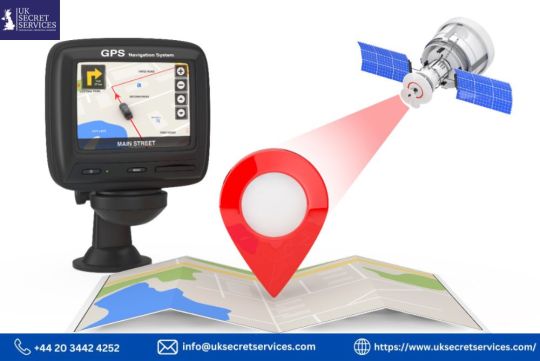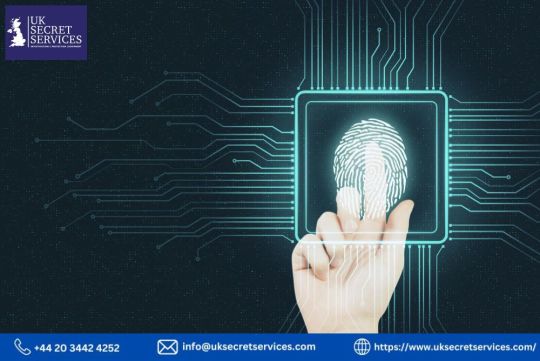#TechForInvestigators
Explore tagged Tumblr posts
Text
How Private Investigators Use Technology in 2024: Tools and Techniques Revolutionising Investigations
Private investigators now rely on technology more than ever. New tools help them work faster and find better evidence. In 2024, tech like digital forensics and smart surveillance makes a big difference. Investigators mix modern gadgets with old-school methods to solve cases. This article looks at the top tools used today. It explains how they help in cases like cheating, fraud, and crime. It also covers legal and ethical issues linked to these tools. If you want to know how private investigations are changing, this guide will help.

The Rise of Technology in Private Investigations
The private investigation industry has changed a lot over the years. In 2024, technology plays a key role in solving cases. Private investigators use many tools to collect and study evidence. These tools help in both criminal and business cases. They give access to large amounts of data, improve surveillance, and make case management easier. In the past, investigators relied on interviews and watching people in person. Now, they also use digital forensics, smart software, and high-tech cameras. These new methods make investigations faster and more accurate.
Essential Technology Tools Used by Private Investigators in 2024
Private investigators use a mix of traditional skills and modern technology to solve cases. In 2024, advancements in digital tools have made investigations faster, more accurate, and efficient. Below is a breakdown of the key private investigator tools shaping investigations today.
1. Surveillance Technology
Surveillance is a crucial part of investigations. With modern tools, private investigators can now gather evidence without being physically present.
A. High-Tech Cameras & Drones
HD & Night Vision Cameras – Capture clear images and videos in low-light conditions.
Body-Worn Cameras – Discreetly record interactions and events.
Drones – Help monitor large areas, follow subjects discreetly, and capture aerial footage.
B. GPS Tracking Devices
Real-Time Tracking – Helps locate and track vehicles or assets.
Geofencing Alerts – Sends notifications when a subject enters or leaves a specific area.
Hidden GPS Trackers – Used for covert operations when legal permissions allow.
2. Digital Forensics & Cyber Investigations
With the rise of cybercrime, private investigators must analyse digital footprints and recover lost data.
A. Computer & Mobile Forensics
Deleted Data Recovery – Restores lost files, messages, and call logs.
Device Cloning – Creates a copy of a hard drive or phone for analysis.
Spyware & Malware Detection – Identifies unauthorised tracking or hacking.
B. Social Media & OSINT (Open-Source Intelligence)
Social Media Analysis – Tracks activities, messages, and hidden connections.
Deep Web & Dark Web Investigations – Uncovers hidden threats and illegal activities.
Metadata Extraction – Identifies time, location, and source of digital files.
3. Artificial Intelligence & Data Analysis
AI-powered tools help investigators analyse large amounts of data quickly and find patterns that humans might miss.
A. Facial Recognition & Biometrics
Face Matching – Identifies people from CCTV footage or online images.
Voice Recognition – Verifies identities through recorded calls or audio.
B. Predictive Analytics & Machine Learning
Behaviour Analysis – Detects unusual patterns in financial records or communication.
Automated Background Checks – Cross-checks identities, criminal records, and employment history.
4. Audio & Communication Monitoring
Investigators often rely on recorded conversations and intercepted communication to gather evidence.
A. Advanced Audio Surveillance
Parabolic Microphones – Capture conversations from a distance.
Voice Stress Analysis – Detects deception by analysing speech patterns.
B. Secure Communication & Encryption Tools
Encrypted Messaging – Prevents unauthorised access to sensitive conversations.
VPNs & Anonymous Browsing – Protects investigators from digital tracking.
5. Case Management & Legal Compliance
Efficient investigations require proper documentation and compliance with the law.
A. Digital Case Management Systems
Cloud-Based Storage – Securely stores case files, evidence, and client details.
Automated Reporting – Simplifies the creation of legal reports and case summaries.
B. Legal & Ethical Considerations
GDPR Compliance – Ensures proper handling of personal data.
Surveillance Laws – Avoids illegal monitoring and privacy violations.

How Artificial Intelligence (AI) is Changing Private Investigations
Artificial Intelligence (AI) is changing how private investigators work. AI tools can quickly sort through large amounts of data. They find patterns and links that humans might miss. This makes background checks, fraud cases, and crime investigations faster.
Machine learning helps in digital forensics. It predicts criminal behaviour and spots hidden clues in data. AI also automates data analysis. This saves time and effort. Investigators can then focus on solving cases instead of sorting through files.
Legal and Ethical Issues in Using Technology for Investigations
Technology gives private investigators great tools, but it also raises legal and ethical concerns. Privacy laws control how personal data is collected and used. The Data Protection Act sets rules on handling personal information.
Investigators must follow laws when using tools like cameras and forensic software. The Investigatory Powers Act controls how surveillance is done. It ensures that evidence is gathered legally.
There are also ethical concerns. Covert surveillance, especially in personal cases, must be handled with care. Investigators must respect people’s privacy while finding the truth.
Key Advantages of Technology in Modern Private Investigations
Speed and Efficiency
Technology helps private investigators solve cases faster. Tools like surveillance devices and software collect and process evidence in real-time. This reduces delays. Digital forensics software, for example, quickly extracts and analyses data. This saves time compared to manual methods.
Accuracy and Reliability
Technology improves accuracy and reliability. Advanced surveillance systems provide clear footage, which can be used as solid evidence in court. Digital forensics tools retrieve data without tampering. This ensures that evidence is trustworthy.
Cost-Effectiveness
Technology lowers investigation costs. While some tools are expensive at first, they save time and effort in the long run. This makes investigations more affordable for both investigators and clients.

Future of Technology in Private Investigations: What’s Next?
The future of private investigations looks exciting. New tools are being developed all the time. Drones may be used for surveillance, giving a wider view of locations. Biometric surveillance, like fingerprint and facial recognition, is also advancing.
As AI improves, data analysis tools will become even smarter. This will make investigations faster and more precise. Over the next decade, these changes will shape the private investigation industry, offering better solutions to investigators and clients.
Conclusion
Technology has changed private investigations in many ways. In 2024, investigators use new tools to find facts, collect evidence, and solve cases fast. Surveillance, digital forensics, and AI make their work easier.
But they must follow laws and respect privacy. Using technology the right way is important. As tools improve, investigations will become even better. The future will bring new ways to solve cases quickly and correctly.
Frequently Asked Questions (FAQs)
Q: What is the best tool for a private investigator? A: Private investigators use many tools. The most useful ones include cameras, tracking devices, and software for managing cases. These tools help gather evidence and analyse information.
Q: How does AI help private investigators? A: AI makes investigations faster and smarter. It sorts data, finds patterns, and helps with fraud checks. AI tools also help in digital forensics and predicting crime.
Q: Can private investigators use technology for criminal cases? A: Yes, they can. They use cameras, forensic tools, and cyber software. These tools help track people, find evidence, and solve crimes.
#PrivateInvestigation#SurveillanceTechnology#DigitalForensics#AIinInvestigations#PrivateDetectiveTools#CyberInvestigation#TechForInvestigators#UKPrivateInvestigators
0 notes